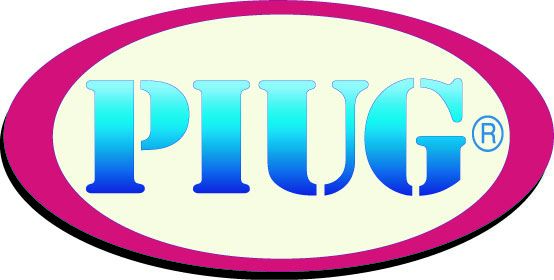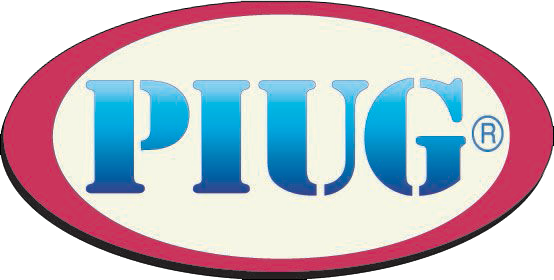PIUG 2012 Biotechnology Meeting
Competitive Intelligence - Meeting Current Challenges in Biotechnology
Workshops
The following workshops are being offered in conjunction with the PIUG 2012 Biotechnology Meeting. Please note:
- You must register separately for each workshop. Space is limited, so please register early.
- Workshop schedule is subject to change.
- Most workshop presentations are available via links in the Workshop Details section of this page..

Workshop Details
Monday, 6 February 2012
Basic Sequence Searching on STN
9:00 am - 4:00 pm
|
Compuworks (Google Map)
263 Summer Street
Boston MA 02110
|
Gin-Yun Eggerichs
Jim Brown |
The presentation is available via the Sequence Searching on STN Workshop web page.
Sharpen your sequence searching skills and learn how to access the unique information in each of STN’s four sequence-searchable databases - CAS REGISTRY, DGENE, PCTGEN, and USGENE.
STN’s sequence databases offer:
- More timely information than other sequence information sources
- Content that has been intellectually indexed by scientists who are experts in their fields
- An unrivalled collection of protein and nucleic acid sequences from patents, journals, and other sources
- Multiple sequence search options: BLAST similarity and motif (Sequence Code Match) searching
The basic sequence workshop will explain the fundamentals of BLAST searching and step-by-step instructions for conducting BLAST searches in all four sequence databases. See how new search techniques only available in STN Express, Version 8.5 can improve the efficiency and comprehensiveness of your sequence searches. New post-processing tools will save you time while improving the appearance and readability of your sequence search results.
In this workshop you will learn about:
- the unique information and indexing in each of the four sequence databases on STN
- BLAST searching in the CAS REGISTRY, DGENE, PCTGEN, and USGENE
- combining sequence searches into a multi-file search
Each session will have extensive hands-on practice time.
Who should attend?
Patent examiners, search professionals, technical specialists, and sequence-focused searchers.
European Bioinformatics Institute Workshop: Chemistry Information 
10:00 am - 12:00 pm
|
Hotel Commonwealth, Longwood Room
500 Commonwealth Ave
Boston MA
|
Louisa Ellis |
The presentation is available as an Adobe pdf file: Workshop.
The chemical databases at the EBI, ChEMBL and ChEBI, hold bioactivity and patent data for approximately 1.2 million compounds that have been synthesised over the past 30 years. For those compounds that do not have patents, you can use these databases to at least get a list of the papers that the compounds were originally published in, for use in further investigations. The 2 hour workshop that will be given at PIUG shall show users how to use the two databases, independently and also to complement each other, in your compound patent searching. It will combine structure drawing, text and compound identifiers as search tools and will illustrate their links with other websites, such as ACS publications and ScienceDirect. There will be hands-on examples, pre-prepared for the audience as well as time at the end for audience members to suggest specific searches or to ask questions.
European Bioinformatics Institute Workshop: Patent Sequence Searching 
1:00 pm - 4:30 pm
|
Hotel Commonwealth, Longwood Room
500 Commonwealth Ave
Boston MA
|
Jennifer McDowall |
Presentations are available as Adobe pdf files: Workshop and Hands-on Exercises.
EBI holds a number of important sequence databases. Patented sequences are held in the Non-redundant Patent Sequence Databases, which have >23.1 million patented nucleotides and >6 million patented proteins. Non-patented sequences are held in the European Nucleotide Archive (>239 million sequences) and the UniProt Protein Archive (>29.5 million non-redundant sequences). The patent sequences are non-redundant and grouped into patent families in order to provide the earliest priory dates for each family, as well as additional patent annotation, patent equivalents and literature. All of these sequence databases can be searched using keywords, as well as with a variety of sequence search engines, including BLAST, FASTA, SSEARCH, GGSEARCH and GLSEARCH, depending upon the types of results you want to get. This 3.5 hours workshop will introduce you to the types of data and annotation found in ENA, UniProt and the non-redundant patent databases, and will go through the various search techniques using text and sequence queries.
Wednesday, 8 February 2012
Applying Text Mining Techniques for Patent Search and Analysis: A Hands-On Workshop 
9:00 am - 12:30 pm
|
Hotel Commonwealth
500 Commonwealth Ave
Boston MA
|
David Milward, CTO, Linguamatics
Jeff Nauss |
Brief Introduction to Text Mining, David Milward, CTO
This will cover where text mining differs from search, and how it is being applied to patents for applications including scientific knowledge extraction, freedom-to-operate searches and competitive intelligence. There will be a short demonstration.
Workshop registration by e-mail is required but free.
Demonstration/Hands-on Tutorial Covering the Following Topics:
- Use of terminologies for improving recall of searches e.g. companies, diseases, genes/proteins etc. - Jeff Nauss
- Application Specialist Presentation of results e.g. for Competitive Intelligence - David Milward, Chief Technology Officer
- Clustering and categorizing patents - Jeff Nauss
- Using linguistic patterns to reduce noise and to extract scientific knowledge - David Milward
- Special topics: mining from tables, dealing with claims, chemical text mining - David Milward
- QA and Roundup
Advanced Sequence Searching on STN
9:00 am - 4:00 pm
|
Compuworks (Google Map)
263 Summer Street
Boston MA 02110
|
Gin-Yun Eggerichs
Jim Brown |
The presentation is available via the Sequence Searching on STN Workshop web page.
Sharpen your sequence searching skills and learn how to access the unique information in each of STN’s four sequence-searchable databases - CAS REGISTRY, DGENE, PCTGEN, and USGENE.
STN’s sequence databases offer:
- More timely information than other sequence information sources
- Content that has been intellectually indexed by scientists who are experts in their fields
- Unrivalled collection of protein and nucleic acid sequences from patents, journals, and other sources
- Multiple sequence search options: BLAST similarity and motif (Sequence Code Match) searching
The Advanced Sequence Searching workshop will explain techniques for searching unique sequence modifications and uncommon sequences. See how to use special characters and symbols to indicate the location(s) of uncertain residues within a sequence. The workshop will also introduce new features in STN Express, Version 8.5 that can help make your sequence searching more comprehensive and efficient.
In this workshop you will learn how to:
- Perform a Sequence Code Match search in REGISTRY, DGENE, PCTGEN, and USGENE
- Retrieve siRNA and miRNA sequences
- Search for antibody information on STN
- Search for modified sequences on STN
Each session will have extensive hands-on practice time
Who should attend?
Patent examiners, search professionals, technical specialists, and sequence-focused searchers.

 Search
Search Community
Community Job Board
Job Board
